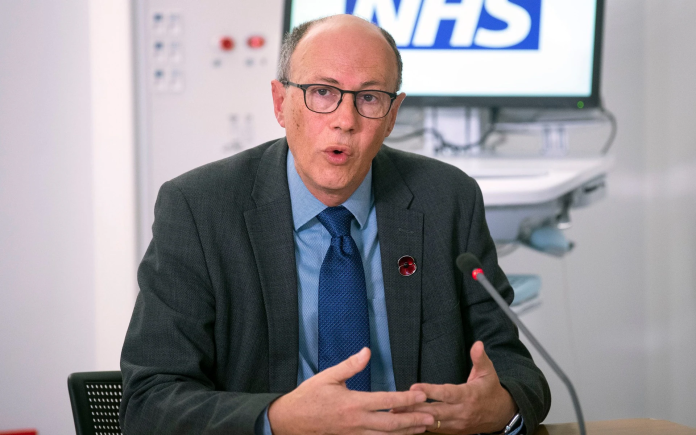Outgoing NHS England Medical Director Professor Sir Stephen Powis proclaimed that cancer treatment stands at the threshold of a transformative “golden era,” where many diagnoses are “no longer a death sentence,” according to Sky News.
In his final interview before retirement, the 64-year-old kidney specialist drew parallels with the revolution in HIV treatment witnessed during his 40-year career. Sir Stephen emphasised that survival rates and longevity post-diagnosis will continue climbing, though he acknowledged prevention remains critical.
We can’t prevent all cancers, but there are cancers that we can certainly prevent.
His optimism reflects rapid advances in early detection and personalised medicine, including England’s lung screening programme diagnosing 75% of cases at early stages and initiatives like the “Jewish BRCA” genetic testing project identifying hundreds of high-risk patients.
The NHS’s £2 billion “Cancer 360” digital platform, now rolling out nationally, exemplifies efforts to harness technology for faster care. This tool consolidates fragmented patient data into a single dashboard, allowing clinicians to prioritise urgent cases and slash administrative delays.
Pilots at Chelsea and Westminster Hospital helped the trust meet the 28-day faster diagnosis standard. Such innovations align with the government’s new 10-Year Health Plan, which pledges to make the NHS “the most AI-enabled care system in the world.”
Yet this optimism clashes with stark operational challenges. Sky News analysis reveals that in 62 of 147 NHS trusts, fewer cancer patients began treatment within the 62-day target this May than in January. Only 15 trusts met the 85% treatment standard, down from 20 in January.
At Hull University Teaching Hospital, just 46% of patients received timely treatment, while Liverpool Women’s Foundation Trust saw performance plummet from 44% to 26%. Professor Pat Price, oncologist and chair of Radiotherapy UK, condemned these “dangerous treatment delays” as “normalised,” urging systemic intervention.
Today’s cancer waiting times show yet another missed opportunity to put a stop to dangerous treatment delays. Patients should not be kept on the edge of their seats waiting for the chance to access the life-saving treatment they need. It’s an unfortunate reality that these delays have become normalised.
The NHS acknowledges “more to do,” citing its 10-Year Plan’s commitment to community-based “Neighbourhood Health Services,” expanded screening, and AI-driven diagnostics to accelerate referrals. A forthcoming National Cancer Plan aims to address inequalities, with Macmillan Cancer Support stressing that “everyone facing cancer deserves the best care, no matter their postcode.”
While Sir Stephen’s vision of a “golden era” hinges on scientific momentum, its realisation depends on bridging the gap between innovation and frontline delivery, ensuring breakthroughs like cancer vaccines and genomic medicine reach patients without delay.
